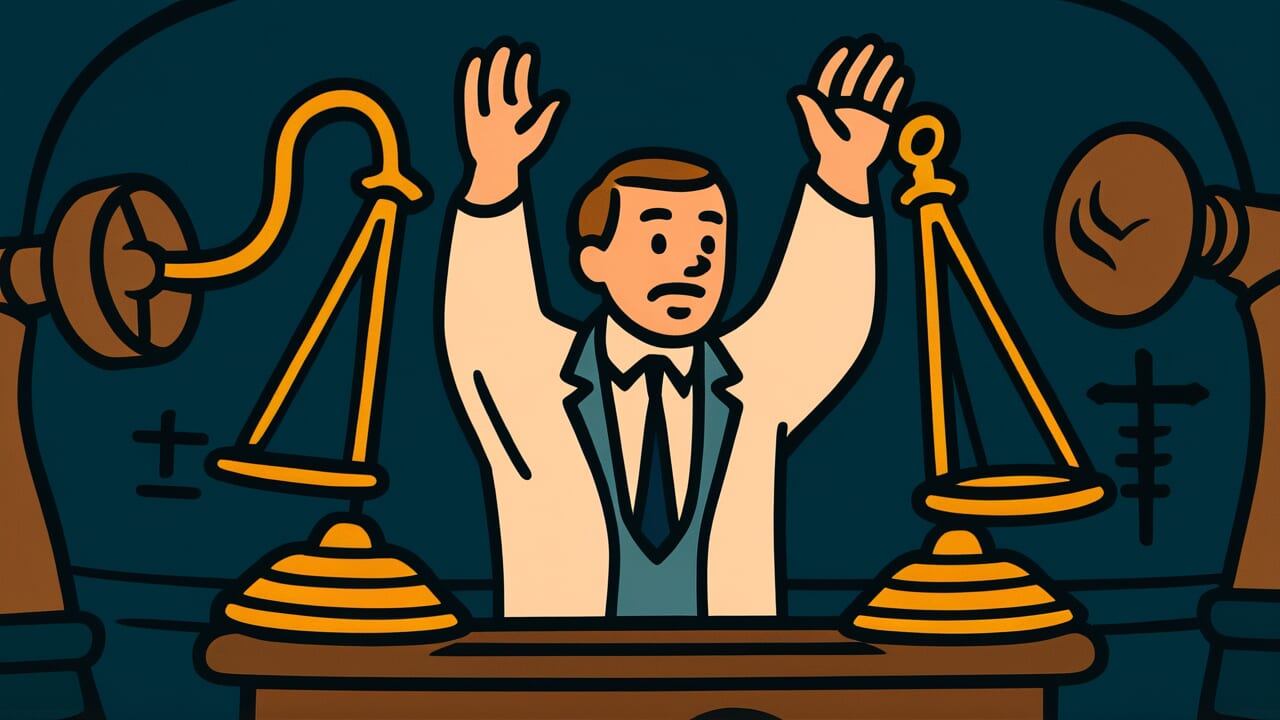How to Read “In bright places there is the king’s law, in dark places there are the gods”
Akitokoro ni wa ōbō ari, kuraki kata ni wa shinmei ari
Meaning of “In bright places there is the king’s law, in dark places there are the gods”
This proverb means that laws control people’s actions in public places. In private places, the gods are watching. It teaches that someone always sees your actions, so you should always do the right thing.
If you break the law in public, you will be punished. But even if you do something bad in the dark where no one sees, you cannot escape the gods’ eyes.
This saying teaches that you should act morally even in places where laws cannot reach.
Today, the religious meaning is less important. But the basic idea still matters: “Do the right thing even when no one is watching.”
This teaches that you should act in ways you’re proud of, even in places without security cameras. Your conscience matters more than outside watching.
Origin and Etymology
The exact source of this proverb is unclear. But similar expressions appear in moral books from the Edo period (1603-1868). It likely came from ethical beliefs that common people shared.
“Bright places” means public places where people can see you. “King’s law” means the country’s laws or rules set by rulers.
“Dark places” means hidden places where no one can see you. “Gods” refers to divine spirits and their protection. This contrast is the heart of the proverb.
What’s interesting is how Japanese ethics are shown as a double watching system. In the visible world, human-made laws keep order. In the hidden world, divine beings watch over people’s actions.
This connects to Buddhist ideas about karma. It also relates to Shinto beliefs that “the sun god is watching.”
In Edo period education for common people, moral teaching had two parts. One was punishment by law. The other was respect for invisible gods and spirits.
This proverb came from that time. It was passed down as a lesson that spoke to people’s conscience.
Interesting Facts
The word “shinmei” (gods) in this proverb originally came from Buddhism. It meant divine power or divine protection.
In Japan, Shinto and Buddhism mixed together. So “shinmei” came to mean all divine beings, not just Buddhist or Shinto gods.
In Edo period schools called “terakoya,” teachers taught lessons like this to children. It was basic moral education.
“King’s law” means laws set by the emperor or shogun. In the Edo period, common people understood it to mean all government laws.
For people back then, laws were not distant. They were part of everyday life.
Usage Examples
- As a government worker, I keep these words in my heart: “In bright places there is the king’s law, in dark places there are the gods”
- Don’t cut corners just because no one is watching. Remember: “In bright places there is the king’s law, in dark places there are the gods”
Universal Wisdom
This proverb shows deep understanding of human weakness. Everyone feels tempted to take the easy path when no one is watching.
Without laws forcing us, we might do what’s convenient for ourselves. Our ancestors understood this human nature.
But this proverb also shows hope for humanity. It doesn’t just use laws to control people. It appeals to inner conscience and moral sense to develop higher ethics.
The idea that gods are watching is not just a threat. It symbolizes the importance of facing your own conscience.
Interestingly, this proverb sees “watching” in two layers. The surface layer is laws as social rules. The deep layer is personal moral sense.
Only when both exist together can people truly live right. This shows deep understanding of human nature.
No matter how complete laws are, they cannot control every corner of the human heart. That’s why listening to your inner voice matters.
Trying to do right even when no one sees becomes the final defense of human dignity.
When AI Hears This
The core of this proverb is a design that makes watching systems work best. To achieve complete watching, you need both places where you’re definitely seen and places where you might be seen.
Jeremy Bentham designed the Panopticon prison. From a central tower, guards could see all prisoners. But prisoners couldn’t see if guards were watching.
This uncertainty of “I might be watched” makes people obey even without actual guards. Interestingly, this proverb expresses the same principle in two layers.
In bright places, the king’s law works as visible power. In dark places, gods work as invisible watchers.
Modern AI security cameras use the same design. Watching every place all the time costs too much. So real cameras go in main areas.
In other areas, the psychological pressure of “there might be a camera” works. Crime research shows that even fake cameras reduce crime by about 60 percent.
This proverb shows that Edo period people understood information imbalance. It minimizes control costs while maximizing obedience.
It contains a paradox: incomplete watching works better than complete watching.
Lessons for Today
This proverb teaches you that places where no one watches test your true character. Is your social media self the same as your private self? That shows your real nature.
Today, security cameras and digital records are everywhere. Privacy is shrinking. But moments exist when no one’s eyes reach you.
At those times, how do you act? Do you pick up trash on the ground or ignore it? Do you honestly report a mistake no one noticed, or stay quiet?
What matters is not outside watching. It’s living according to your inner voice. This doesn’t mean religious gods. It means your own conscience and the values you treasure.
People who can act right when no one watches have strength. They don’t betray themselves.
These actions build up. They shape your character. Eventually they return as trust from others.
Being the same person in bright and dark places—that is true honesty.



Comments